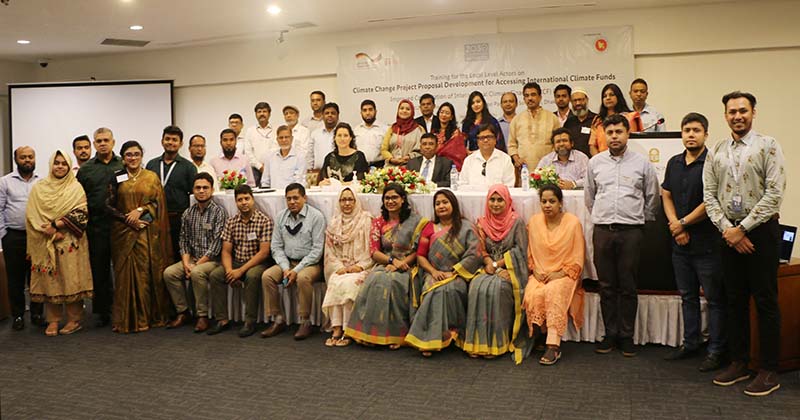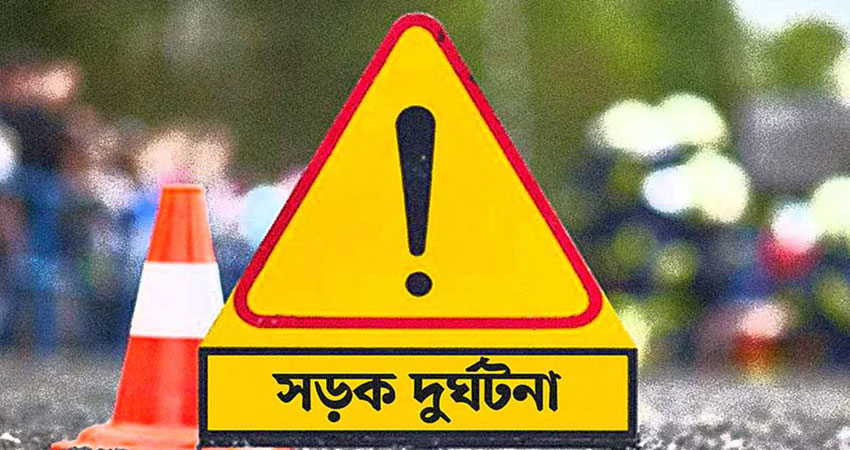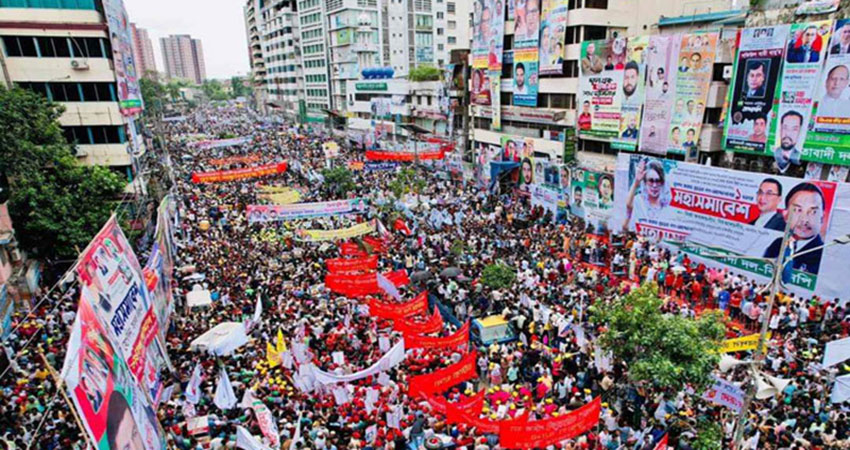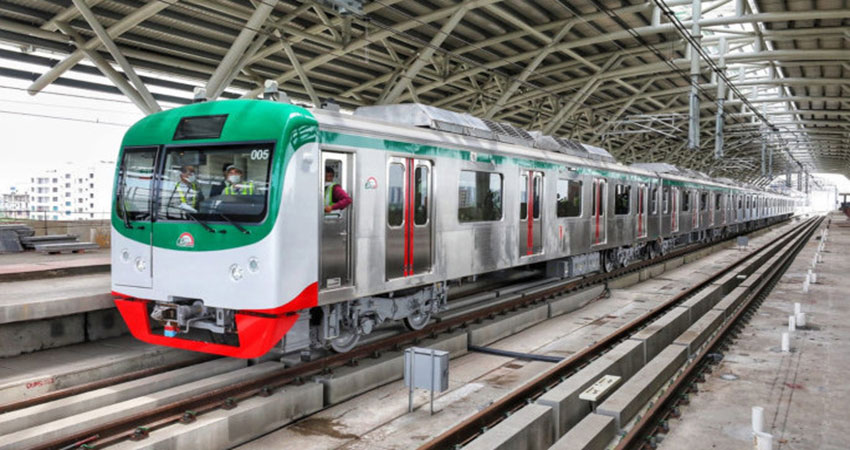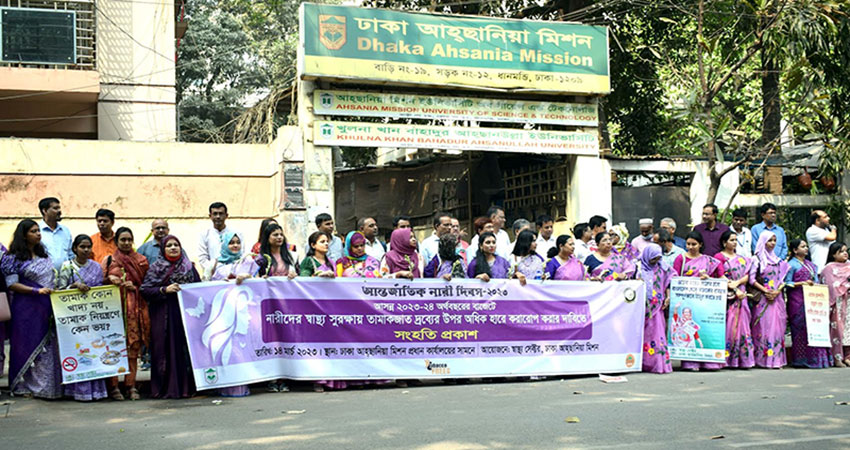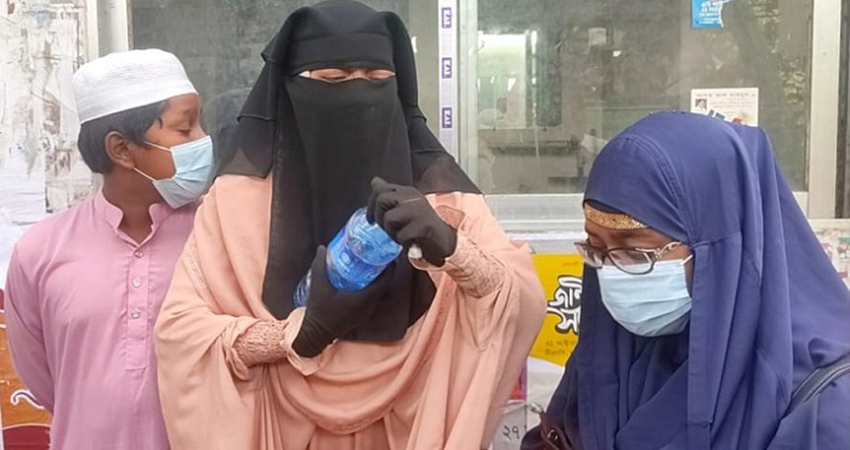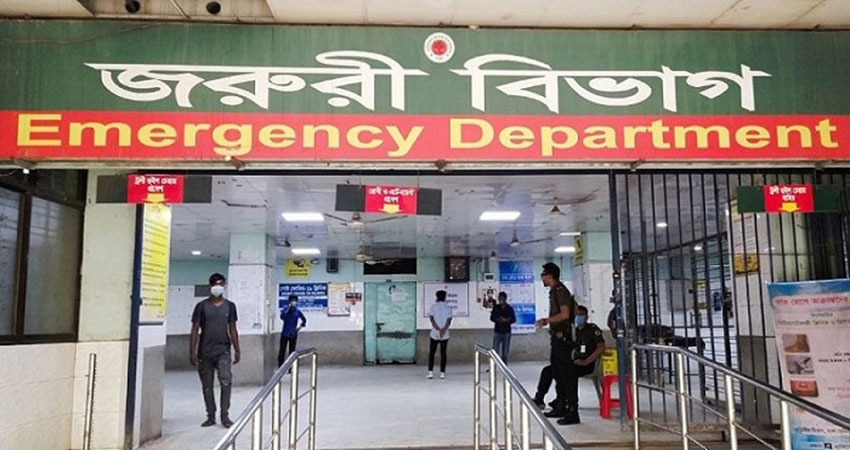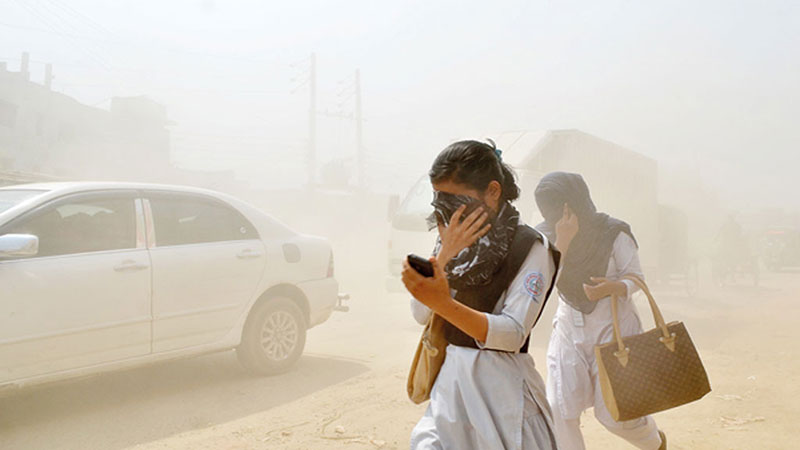A two-day long ‘Training for Local Level Actors on Climate Change Project Proposal Development for Accessing International Climate Funds’ was organized by the Economic Relations Division (ERD), supported by the Deutsche Gesellschaft für Internationale Zusammenarbeit (GIZ) GmbH, at Hotel Pan Pacific Sonargaon, Dhaka recently.
Bangladesh is expected to graduate from the status of a Least Developed Country (LDC) by 2026. Achievements in economic development are, however, at risk from the impact of climate change. According to the Global Climate Risk Index (CRI) 2020, Bangladesh ranks the 7th among the 10 countries most affected by extreme weather events. Adapting to climate change is thus vital to the country’s development.
The training has been developed and conducted by the Centre for Climate Change and Environmental Research, BRAC University, with E Co. Ltd. UK and technical inputs from many other organisations including GIZ, ERD, Bangladesh Bank, Palli Karma Sahayak Foundation (PKSF), Infrastructure Development Company Limited (IDCOL), and the Food and Agriculture Organization (FAO) of the United Nations.
Thirty officials from selected City Corporations and Municipalities, LGED, Bangladesh Bank NILG, and Economic Relations Division (ERD) took part in the training sessions. The programme covered a number of topics including risk and vulnerability of climate change in Bangladesh, climate change adaptation (CCA) and mitigation (CCM) potential, criteria for establishing climate rationale in the project proposal and linking SDGs with the proposal.
During the opening session, Chief Guest Mr. Kabir Ahamed, Joint Secretary and Wing Chief – UN Wing, Economic Relations Division (ERD), said, “Although Bangladesh is least responsible for climate change, it is one of the most affected countries. Every year our various development projects are getting hampered due to climate change induced events. I would urge the concerned authorities to consider the issue of adapting to climate change into account while implementing various development projects. There are various funds related to climate change around the world, that we cannot take advantage of because we are not aware of those opportunities. We are taking different initiatives including establishment of a climate cell in ERD and development of a website with resource materials to inform everyone about the funding opportunities.”
Dr. Dana de la Fontaine, Programme Coordinator, Adaptation of Urban Areas to Climate Change, GIZ Bangladesh, said, “The future of this country is very much dependent on adapting to climate change. Bangladesh needs sustainable financial solutions for the future. Germany is very much engaged in supporting Bangladesh for addressing climate change issues.”
Dr. Firdaus Ara Hussain, Principal Advisor, ICICF Project of GIZ Bangladesh, said, “We need to be able to pitch high-quality project proposals to international climate funds and understand the funding opportunities and their stringent requirements. With this training, we are focusing on building capacity to develop high-quality project proposals for the most vulnerable people in the climate-affected areas. We hope the training will help the participants utilize this knowledge in regular work.”

